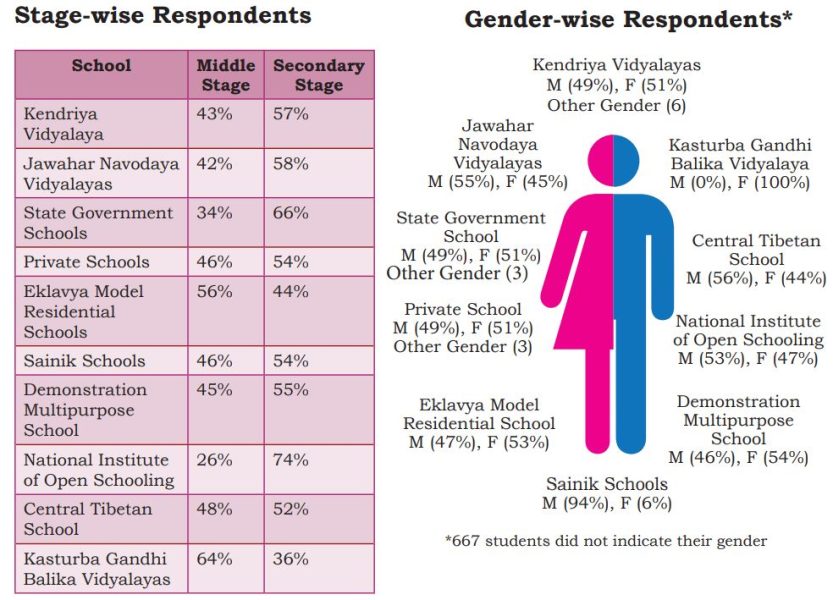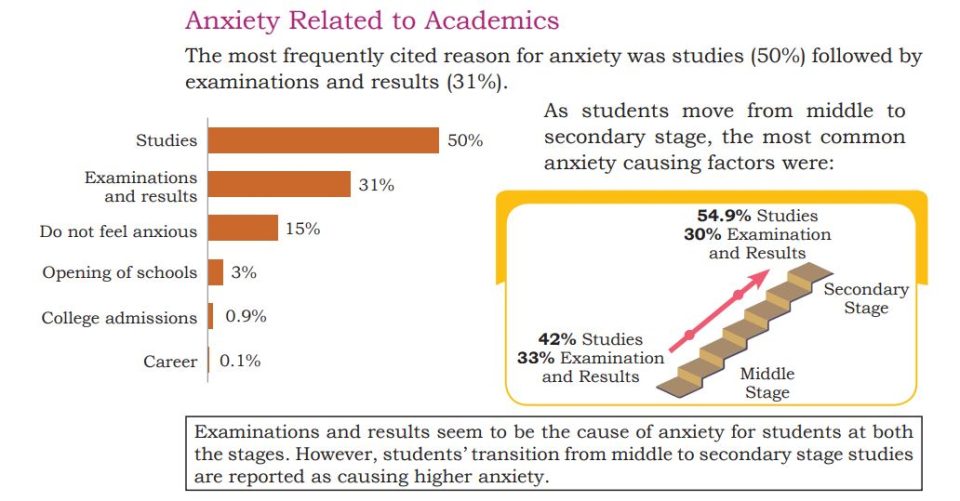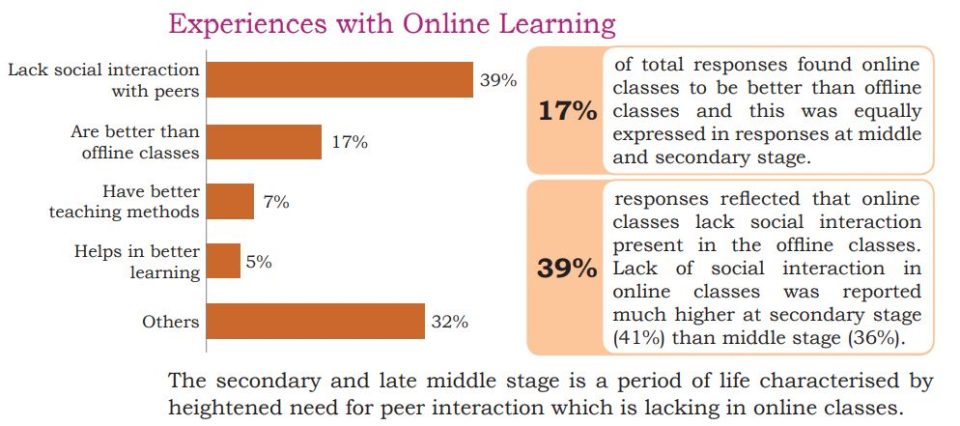
81% of students feel anxiety due to studies, exams, results: NCERT survey
Nearly 30% of students lag behind in studies due to lack of concentration while 43% experience mood swings; 17% find online classes to be better than offline classes, reveals survey

A survey on mental health and wellbeing of school students conducted by the National Council of Education Research and Training (NCERT) has found that 29% of students lag behind in studies due to lack of concentration while 43% experienced mood swings.
‘Mental Health and Well-being of School Students – A Survey, 2022’ was undertaken by NCERT’s Manodarpan Cell with the aim to gain an understanding of the perception of school students on different aspects of mental health and well-being, NCERT said in its report.
The survey was conducted through a Google form, covering students across gender, grades VI-VIII (middle stage) and IX-XII (secondary stage) and schools nationwide. The link for the Google form was shared with the Ministry of Education (MoE) for data collection from the states/schools. In order to cover all school types, Google forms were shared with government (central and state) and private schools, NCERT added.
Also read: ‘Sleeping on it’ helps you better manage your emotions and mental health; here’s why
Online questionnaire
More than 3.79 lakh students participated in the survey between January and March 2022 from 28 states and eight Union Territories.

“The survey tool, which was a self-report online questionnaire for students, was developed to elicit their responses with respect to their perceptions about mental health and well-being. Anonymity of participants was ensured by making the name column optional, allowing students the comfort, privacy and independence to respond. The online mode of survey gave adequate scope to students to express their views with minimum interference,” the survey report said.
As per the survey, only 22% of responses reported not lagging behind in studies. Lack of concentration was more evident in responses of students at the secondary stage (32%) in comparison to middle stage (24%).
Further, 73% said they were satisfied with their school life while 55% expressed satisfaction with their body image. As per the survey, 81% of them attributed studies, exams and results as the main causes of anxiety, and 28% used yoga and meditation for coping with stress.
Also read: Govt to roll out national tele mental health plan & digital health ecosystem
As per the survey, 15% of the total respondents expressed not giving in to peer pressure. This pattern shows an increase in higher classes while 33% of the total respondents agreed that they try to please friends most of the time by adhering to what they want. The response trend was similar at both stages with a little decrease as they moved to the secondary stage.
When asked whether they are satisfied with their academic performance, 39% of them said yes.
On the time management aspect, 12% of students reported not being able to submit their assignment on time. The responses were nearly similar in the middle stage (12%) and secondary stage (11%). These aspects point to causes of falling behind in academics while 36% of total students agreed to doing well in studies for social value and approval seeking.
Around 17% of total responses found online classes to be better than offline classes and this was equally expressed in responses at the middle and secondary stage while 39% of responses reflected that online classes lack social interaction present in the offline classes. Lack of social interaction in online classes was reported much higher at the secondary stage (41%) than the middle stage (36%).
When it comes to emotions experienced, 67% expressed experiencing positive emotion, and happiness while only 1% were angry.

Source: NCERTIntense emotions during COVID
“The emotions experienced by students, specifically during the COVID pandemic, largely point at mood changes. Also of concern are other extreme emotions which even though observed in small numbers, are of great significance keeping the mental wellbeing of students in view. Besides, the developmental changes taking place in middle and secondary stages also contribute to these shifts in emotions,” the survey said.
Also read: How dance, mindfulness can stimulate brain, improve mental health
A higher percentage of responses from the secondary stage (48%) indicate experiencing mood swings as compared to the middle stage (37%). A nearly similar percentage of responses, 13% from the middle stage and 15% from the secondary stage, indicate experiencing extreme emotions such as an emotional breakdown. Overall, 43% of responses reported experiencing mood changes.
“The overall findings of the survey demonstrate that students’ responses were high on protective factors for mental well-being such as responsibility for doing well in life, experiencing satisfaction with school life, considering themselves as trustworthy, support from friends, parents and resolving by themselves, and practising yoga and meditation as coping strategies.
“A concerning trend observed among students across stages, gender and types of school was, anxiety among students with regard to studies, examination and results and frequent mood swings,” the survey said.

Recommendations
In line with the vision of National Education Policy – NEP, 2020, some recommendations based on the survey findings were suggested.
Among the recommendations were, “preparing schools for addressing and nurturing mental and emotional well-being of students by creating enabling conditions of care, trust and inclusive practices. School curriculum to integrate mental and emotional well-being at all stages of education. The role of teachers in supporting social and emotional learning has been recognised, but preparing teachers for well-being and competence is a low priority in teacher preparation programmes.
“This calls for strengthening the training of teachers, both at pre-service and in-service levels for ensuring every student’s mental and emotional well-being. Assessment of mental well-being (personal, social and emotional) as visualised in NEP, 2020 can become a part of students’ Holistic Progress Card (HPC).”

